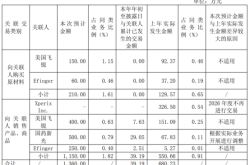Thailand and Indonesia's auto markets in downturn, Vietnam's mini-car market poised for robust growth
![]() 11/04 2024
11/04 2024
![]() 558
558


▍Thailand: Sales hit new low in September, auto industry continues downturn
In September, Thailand's auto production and sales plummeted, with total vehicle production reaching 122,277 units, a year-on-year decrease of 25.48%. Domestic sales stood at 39,048 units, down 37.11% year-on-year, marking a new low in 53 months. Exports of complete vehicles amounted to 80,254 units, a decrease of 17.67% year-on-year. The sharp decline in production, sales, and exports was attributed to stricter domestic loan approvals, higher household debt levels, and geopolitical tensions in the Middle East disrupting shipping routes in major export markets.
Among various market segments, passenger car sales amounted to 15,668 units, a year-on-year decrease of 38.4%. Sales of xEVs (various types including hybrid and pure electric vehicles) totaled 13,102 units, accounting for 34% of the total auto market, down 21% year-on-year. Sales of pure electric vehicles reached 4,982 units, a decrease of 32% year-on-year.
From January to September, Thailand's total auto production amounted to 1,128,026 units, down 18.61% year-on-year. Export production decreased by 15.78% year-on-year, while domestic production plunged by 42.31%. Registrations of pure electric vehicles reached 75,653 units, up 11.67% year-on-year. Among them, passenger car registrations of pure electric vehicles amounted to 54,235 units, an increase of 8.14% year-on-year. The auto industry conference to be held this month may lower production and sales targets.

▍Malaysia: Stellantis establishes new regional parts center, enhancing influence in ASEAN
According to foreign media reports, Stellantis has established a new regional parts center in Malaysia, expanding its investment in the ASEAN region. This strategic move aims to enhance the company's influence in the region and improve customer after-sales service experience.
The new parts center will become operational in the first quarter of 2025 and will meet the growing demand from around 20 countries in India and the Asia-Pacific region, including Malaysia. The center will ensure efficient access to parts for dealers and customers, reducing downtime and improving overall service efficiency. It also consolidates Malaysia's position as a regional automotive hub.
The center will stock parts for all Stellantis brands, including those currently sold in Malaysia such as Peugeot, Leapmotor, Citroën, Alfa Romeo, Jeep, and RAM.

▍Indonesia: Sales target for the year revised downward, exports pressured by economic uncertainties
Statistics from the Indonesian Automotive Industry Association (GAIKINDO) show that in September, Indonesian auto sales amounted to 72,667 units, down 9.1% year-on-year. Retail sales (from dealers to consumers) were 72,366 units, a decrease of 10.6% year-on-year. From January to September, wholesale sales totaled 633,218 units, down 16.2% year-on-year, while retail sales reached 657,223 units, a decrease of 11.9% year-on-year.
Jongkie Sugiarto, Chairman of GAIKINDO, stated that the auto market, particularly the four-wheel vehicle market, remains sluggish. Against this backdrop, GAIKINDO has revised the region's auto sales target for 2024. The initial target of 1.1 million units has been lowered to 850,000 units. Furthermore, due to global economic uncertainties, Indonesian auto exports have performed poorly. GAIKINO data indicates that from January to September, auto exports amounted to 343,223 units (complete built-up, CBU), a decrease of 9.6% year-on-year.
▍Vietnam: Mini-car market poised for robust growth
Vietnamese auto experts believe that significant changes may occur in Vietnam's mini-car market, driven by evolving consumer preferences, emerging trends, and favorable macroeconomic conditions.

Compared to larger vehicles, mini-cars are compact and well-suited for use in narrow streets and crowded urban areas. This practicality addresses the need for convenient transportation amidst rapid urbanization. Additionally, mini-cars are more affordable, fuel-efficient, and attractive to consumers prioritizing economic and sustainable transportation options.
Moreover, the Vietnamese government has implemented favorable policies to promote the development of the mini-car market, including tax incentives for small and energy-efficient vehicles. Investments in infrastructure, such as expanding road networks and parking facilities, also contribute to the expected growth in mini-car ownership.
Currently, while the mini-car segment is considered niche, it is on the cusp of significant growth. With the combination of affordability, urban practicality, electrification drive, and supportive government policies, this market is expected to thrive.
Typesetting | Zheng Li
Source | Thailand-business-news, Autobuzz.my, Gaikindo.or.id, Vietnamnews.vn
Image Source | Shutterstock







